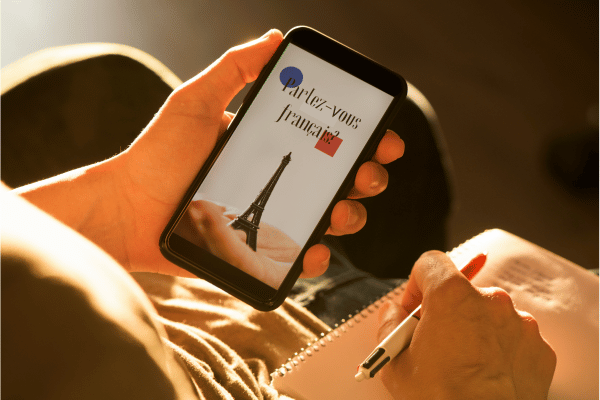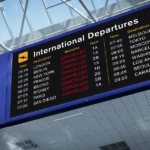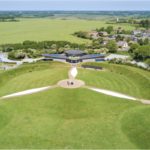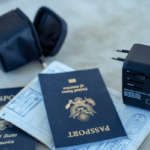Traveling to France presents a thrilling adventure, enriched by its culture and language. Yet, language barriers can pose challenges. This guide offers invaluable tips for effective communication in France, ensuring a smoother journey. Embrace these strategies, from learning basic French phrases to leveraging technology, and transform potential obstacles into opportunities for deeper connection and understanding. Dive into the heart of French culture with confidence and curiosity.
Introduction to Navigating Language Barriers

Venturing into France, the allure of its culture and history invites exploration. However, language barriers often emerge as a challenge for many travelers. Firstly, acknowledging this hurdle is crucial. It sets the stage for a journey filled with learning and growth. Rather than a blockade, view it as an opportunity to immerse deeply into the French way of life, enhancing the overall travel experience.
Effective communication in France begins with a willingness to learn. Simple phrases in French can open doors, revealing the warmth of the local populace. Moreover, these initial efforts in language learning signify respect and a genuine interest in the culture. Such gestures are appreciated, fostering a sense of connection. They also pave the way for more meaningful interactions, even with limited vocabulary.
Transitioning to a new linguistic environment requires patience and openness. Embrace every conversation as a learning moment, a chance to enhance understanding and fluency. Furthermore, mistakes should be seen not as setbacks but as stepping stones. Each misstep is a valuable lesson, contributing to greater linguistic competence and confidence. Thus, navigating language barriers becomes a journey of personal and cultural discovery.
The Importance of Learning Basic French Phrases
Embarking on a journey to France, grasping basic French phrases becomes an essential tool. This initial step is not merely about language; it’s an entryway into the heart of French culture. By learning greetings, directions, and common questions, travelers can navigate daily situations more smoothly. Moreover, this effort demonstrates respect towards the locals, often leading to more engaging and enriching interactions.
Furthermore, mastering basic phrases enhances one’s confidence when exploring new areas. It bridges the gap between being a tourist and experiencing France on a deeper level. Even simple exchanges at a café or market can transform into memorable moments. Additionally, this knowledge empowers travelers to seek out off-the-beaten-path experiences, where English may be less prevalent.
Effective communication in France isn’t just about speaking; it’s about connecting. Learning basic French phrases facilitates a two-way interaction, inviting locals to share their stories and insights. Consequently, these connections often lead to valuable travel tips and recommendations not found in guidebooks. Embracing the challenge of learning a new language opens up a world of possibilities, making every trip a unique adventure.
Utilizing Technology to Overcome Communication Hurdles

In today’s digital age, technology plays a pivotal role in overcoming language barriers. Various apps and devices have emerged as invaluable tools for travelers in France. From real-time translation apps to language learning platforms, these technological aids can significantly ease the challenge of communication. They act as a bridge, enabling smoother interactions and fostering a deeper understanding of the French language and culture.
Moreover, these tools offer the flexibility to learn and communicate on the go. Whether it’s translating a menu in a Parisian café or asking for directions in Lyon, technology provides instant support. This convenience not only enhances the travel experience but also reduces the stress associated with language barriers. As a result, travelers can navigate their surroundings more confidently and independently.
Effective communication in France is further facilitated by the use of social media and language exchange platforms. These networks allow travelers to connect with locals and fellow travelers, offering opportunities for practice and cultural exchange. By leveraging technology, one can immerse in the language before even setting foot in France, laying a strong foundation for meaningful interactions and enriching the travel experience.
Body Language and Non-Verbal Cues in France
Navigating through France, one quickly realizes the significance of body language and non-verbal cues. These unspoken elements of communication play a crucial role in conveying messages without words. For instance, a simple smile or nod can bridge gaps where language falls short. Understanding these cues can greatly enhance interactions, making them more fluid and meaningful, even when verbal communication might be limited.
Additionally, being mindful of cultural nuances in body language can prevent misunderstandings. For example, the French value personal space and may interpret certain gestures differently than other cultures. A firm handshake signifies respect and sincerity, while maintaining eye contact shows interest and engagement. Grasping these subtleties not only improves communication but also deepens mutual respect and understanding.
Effective communication in France, therefore, extends beyond words. It encompasses an awareness of body language and the ability to interpret non-verbal signals accurately. This skill is particularly useful in social settings and business encounters, where the right gesture can speak volumes. Embracing the full spectrum of communication enhances the richness of the travel experience, fostering connections that transcend language barriers.
The Role of Cultural Immersion in Language Learning
Delving into French culture offers more than just a picturesque backdrop for travelers; it serves as a dynamic classroom. Cultural immersion accelerates language learning by necessitating real-life application of French in daily interactions. Through this deep dive, travelers encounter language in its natural habitat, picking up nuances and slang that formal education often overlooks. This hands-on approach enriches vocabulary and bolsters confidence in speaking.
Furthermore, immersion provides context to the language, making learning more intuitive and memorable. Engaging with locals, participating in traditional festivals, and exploring regional cuisines allow travelers to experience the language through the lens of culture. These authentic experiences facilitate a deeper understanding and appreciation of both the language and the people who speak it. Consequently, language becomes more than a tool for communication—it becomes a bridge to understanding.
Effective communication in France hinges on this cultural immersion. It transforms language learning from a task into an adventure. Each conversation with a local, each sign read, and each menu navigated contributes to a traveler’s linguistic repertoire. Immersion compels learners to adapt, think on their feet, and embrace the French language in all its complexity and beauty. Thus, it stands as a cornerstone of effective communication and a gateway to a richer travel experience.
Practical Tips for Everyday Conversations
Engaging in everyday conversations in France is a blend of art and strategy. It starts with a warm “Bonjour,” setting a positive tone. This simple gesture of politeness can open many doors, making locals more receptive. Additionally, carrying a pocket dictionary or translation app can aid in navigating through unfamiliar words, ensuring that communication remains smooth and effective.
Furthermore, practicing common phrases before your trip can significantly improve your conversational ability. This preparation allows for a more authentic interaction with locals, moving beyond basic tourist exchanges. Also, asking questions is a great way to learn. It not only shows your interest in the language but also in the person you’re speaking with. Each conversation becomes a unique learning opportunity, enhancing your linguistic skills.
Effective communication in France also involves being an active listener. Paying close attention to responses helps in understanding the context and nuances of the language. Moreover, it’s crucial to be patient with yourself and others during these exchanges. Remember, making mistakes is part of the learning process. Embrace them, and you’ll find that each error brings you one step closer to fluency.
Engaging with Locals: Do’s and Don’ts
Interacting with locals is a cornerstone of the travel experience in France. A respectful approach begins with a polite greeting, acknowledging the cultural norm of courtesy. This simple act of civility can pave the way for more meaningful exchanges. It’s important to remember that patience and openness are key, as they reflect a genuine interest in the local lifestyle and customs.
Additionally, being mindful of local etiquette significantly enhances interactions. For instance, being punctual for appointments and speaking softly in public spaces are signs of respect. Moreover, making an effort to use French phrases, even if imperfectly, is highly appreciated. These gestures of goodwill do not go unnoticed and can lead to enriching experiences and deeper insights into French culture.
Effective communication in France also involves understanding the nuances of refusal and disagreement. It’s crucial to express dissent respectfully, using polite phrases and a friendly tone. This approach maintains a positive atmosphere and facilitates a constructive dialogue. Navigating these social intricacies with sensitivity and awareness can transform ordinary encounters into memorable moments of cultural exchange.
French Language Resources for Travelers
The journey to mastering the French language is made easier with the right resources. For travelers, an array of tools is available to facilitate this process. From online courses and apps to traditional phrasebooks, each offers unique advantages. These resources can provide a solid foundation, making everyday interactions more manageable and enjoyable.
Additionally, immersion experiences, such as language cafes or exchange meetups, offer practical application. These settings not only enhance language skills but also provide insight into the cultural nuances of communication. Engaging in real conversations with native speakers accelerates learning and builds confidence. It’s a dynamic way to apply what you’ve learned in a supportive environment.
Effective communication in France is significantly boosted by utilizing these language resources. They enable travelers to navigate through various situations, from ordering in a restaurant to asking for directions. Having access to a comprehensive set of learning tools empowers individuals to immerse themselves fully in the French experience, enriching their travel adventures and fostering a deeper connection with the local community.
Overcoming Fear and Embracing Mistakes
Embarking on a linguistic journey often entails facing fears and overcoming the apprehension of making mistakes. In the context of learning French, this is particularly true. Embracing the inevitability of errors as part of the learning curve is essential. This mindset shift can transform daunting conversations into opportunities for growth, making each interaction a stepping stone towards fluency.
Moreover, the willingness to step out of one’s comfort zone and engage in conversation, despite the potential for mistakes, signifies a commitment to learning. It’s through these real-world applications that language comes to life. Practicing French with locals, asking questions, and attempting to communicate in daily situations are invaluable experiences. They not only improve linguistic skills but also enhance cultural understanding.
Effective communication in France is not hindered by mistakes but enriched by the resilience to learn from them. Acknowledging errors and seeking correction pave the way for progress. This approach fosters an environment where learning is continuous, and improvement is constant. Ultimately, the journey becomes not just about mastering a language but about embracing the culture and connecting with people on a deeper level.
The Future of Language Learning for Travelers
As we look towards the future, the landscape of language learning for travelers is evolving rapidly. Advances in technology and accessibility to resources are making it easier than ever to learn new languages. This progress is particularly exciting for those planning to explore France. With immersive apps and virtual reality experiences, learners can simulate real-life conversations before even arriving in the country.
Furthermore, the integration of artificial intelligence in language learning tools is personalizing the educational experience. Tailored lessons that adapt to individual learning styles and speeds are becoming the norm. This bespoke approach enhances the efficiency of learning French, allowing travelers to achieve greater proficiency in shorter periods. The future promises a more intuitive and effective way of overcoming language barriers.
Effective communication in France will increasingly rely on the innovative tools at our disposal. As these technologies continue to develop, they will offer travelers unprecedented support in mastering French. This evolution not only makes language learning more accessible but also more enjoyable. Looking forward, the journey of learning French is set to become an integral and thrilling part of the travel experience, opening up new avenues for cultural exchange and understanding.
In Summary
In the journey of exploring France, overcoming language barriers is not merely about mastering a set of phrases but about embracing a vibrant culture and connecting with its people. The tips and strategies discussed provide a roadmap for effective communication, enabling travelers to navigate through linguistic challenges with confidence. Each interaction, whether perfected or imperfect, becomes a valuable part of the travel experience.
Moreover, the advancements in technology and the abundance of resources available today have revolutionized the way travelers approach language learning. These tools not only facilitate a deeper understanding of the French language but also enrich the overall travel experience. As we continue to embrace these innovations, the process of learning becomes more integrated into the fabric of our adventures, making every moment an opportunity for growth and discovery.
Ultimately, effective communication in France is about more than just exchanging words; it’s about forging genuine connections and immersing oneself in the essence of French life. With an open heart and a willingness to learn, every traveler can unlock the full potential of their journey, creating memories that last a lifetime. Let these insights guide you as you embark on your own path of exploration and cultural immersion in the beautiful landscape of France.
II. Frenquently Asked Questions About France
- How do I navigate the French healthcare system as a tourist?Ensure you have travel insurance that covers healthcare. Pharmacies are widespread for minor ailments, and emergency services can be contacted by dialing 112.
- What are some popular French festivals to experience?Don't miss the Cannes Film Festival, Bastille Day celebrations, and the Nice Carnival for their vibrant displays of French culture and festivity.
- What are the best regions in France for wine tasting?Visit Bordeaux for reds, Champagne for sparkling wines, Burgundy for Chardonnay and Pinot Noir, and the Loire Valley for a variety of whites.
- How do I respect local customs while visiting religious sites in France?Dress modestly, remain quiet, and follow any posted visitor guidelines to show respect while visiting places like Notre-Dame Cathedral and Mont Saint-Michel.
- What should I know about shopping in France?Shops in smaller towns may close for lunch, sales are state-regulated and occur twice a year, and asking for a "détaxe" form can save tourists on VAT for larger purchases.
- Is tap water safe to drink in France?Yes, tap water is safe to drink in most parts of France, making it both a sustainable and economical choice.
- What are some French etiquette tips for visiting someone's home?Bring a small gift such as wine, flowers, or chocolates. Arrive on time or slightly late, and always remove your shoes if the host does.
- Can you recommend any French books or movies to get inspired before my trip?Movies like "Amélie" and "Midnight in Paris" and books like "A Moveable Feast" by Ernest Hemingway offer enchanting views of France.
- What are the rules for tipping in France?Service charge is included in bills, but leaving an extra 5-10% at restaurants is appreciated for good service.
- How do I use public transport in Paris?To use public transport in Paris, purchase a ticket or pass from metro stations, kiosks, or RATP app. The metro, buses, and trams are interconnected for ease of travel. A single ticket works for a one-way journey, including transfers. Consider a day pass for unlimited travel or a Navigo pass for longer stays. Always validate your ticket before boarding, and keep it until you exit to avoid fines.

Ryan Taylor, a seasoned traveler with over a decade of experience exploring Europe’s nooks and crannies, offers a wealth of knowledge and unique insights into the continent’s diverse cultures and landscapes. His passion for travel began in his early twenties, and since then, Ryan has journeyed through numerous European countries, collecting stories, tips, and a deep understanding of each destination’s unique charm. His blog entries are not just guides but narratives enriched with personal experiences, making every recommendation and piece of advice relatable and practical for fellow travel enthusiasts. With a keen eye for hidden gems and a love for sharing his adventures, Ryan’s writings are a treasure trove for anyone seeking to discover the beauty and richness of Europe.






